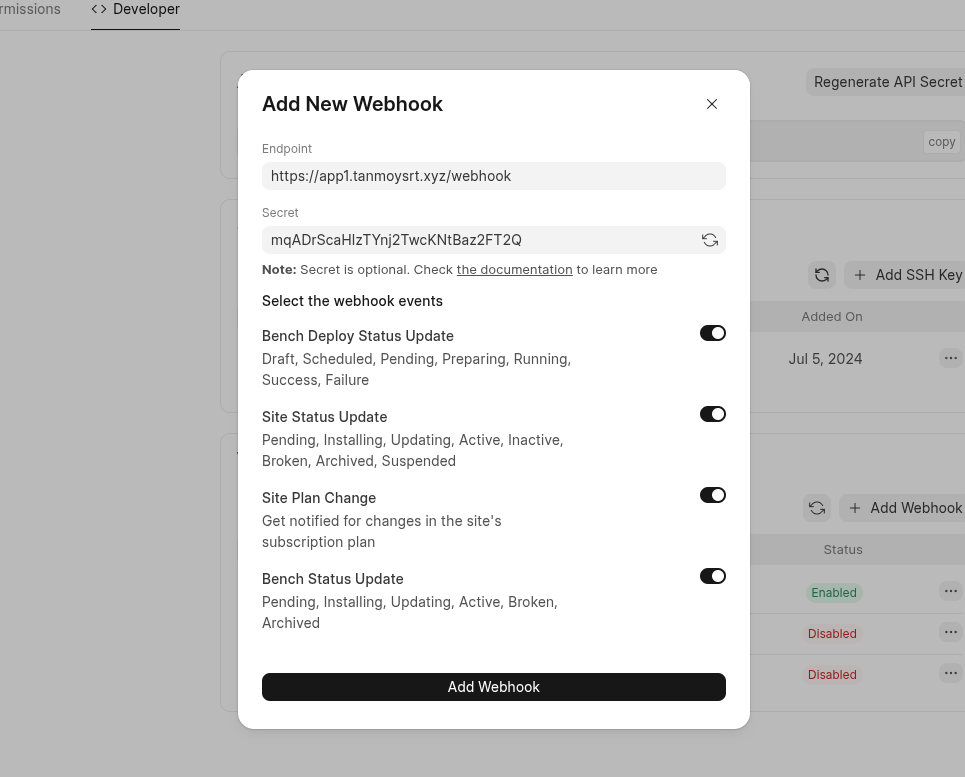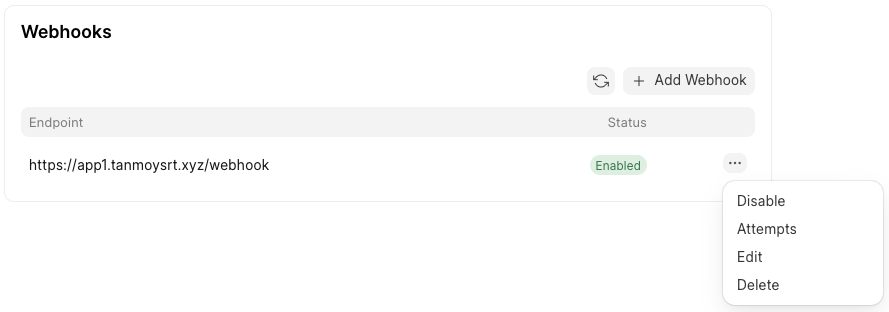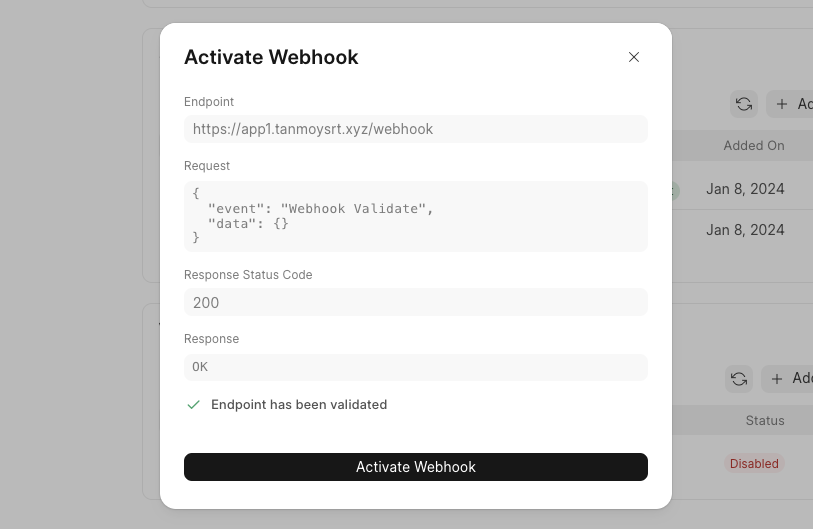Webhook Implementation
Webhook Payload Format
Webhook requests are sent as POST requests, and the body contains the following information:
{
"event": "Site Plan Change",
"data": {
// details of the resource
}
}
Prerequisites
- Your backend service should be up and running to accept incoming webhook requests.
At minimum, You need to handle Webhook Validate event to be able to validate and activate the webhook.
Here, it's a tiny flask app to get started with webhook -
from flask import Flask, request
app = Flask(__name__)
@app.route('/webhook', methods=['POST'])
def webhook():
payload = request.get_json()
event = payload['event']
data = payload['data']
print(f"Event: {event}")
print(f"Data: {data}
")
# This event is sent by FC at the time of webhook validation
if event == "Webhook Validate":
return 'OK'
# Its just for demo purpose, you can write your business logic here
return 'OK'
if __name__ == '__main__':
app.run(debug=True)
- Your backend should be publicly accessible.
Setup Guide
- Visit
Developer Settingsinside Frappe Cloud dashboard (<https://frappecloud.com/dashboard/settings/developer>) - Click on
Add Webhookbutton - Put your backend endpoint and select at-least one webhook event and submit.
> The Secret will be used for webhook authentication. This is an optional field.
>
> Check the Authentication section to learn more about this.
>

- Next, click on the
Activatebutton of webhook record.
 5. Click on
5. Click on Validate Webhook
6. If everything looks good, you can activate the webhook from there

Similarly, you will see one event on your backend -
Event: Webhook Validate
Data: {}
127.0.0.1 - - [24/Sep/2024 13:25:33] "POST /webhook HTTP/1.1" 200 -
- Click on
Activate Webhookto make it active. - That's all !
Authentication
You can configure a secret key for authentication at the time of webhook creation or use the edit option to update that
If you have provided secret key, Frappe Cloud will set that secret key in X-Webhook-Secret header of all webhook requests.
We can modify the tiny flask app to handle webhook authentication -
from flask import Flask, request
app = Flask(__name__)
@app.route('/webhook', methods=['POST'])
def webhook():
# authorise webhook requests
secret = request.headers.get('X-Webhook-Secret', "")
if secret != "super-secret-key":
return 'Unauthorized', 401
payload = request.get_json()
event = payload['event']
data = payload['data']
print(f"Event: {event}")
print(f"Data: {data}")
# This event is sent by FC at the time of webhook validation
if event == "Webhook Validate":
return 'OK'
# Its just for demo purpose, you can write your business logic here
return 'OK'
if __name__ == '__main__':
app.run(debug=True)
